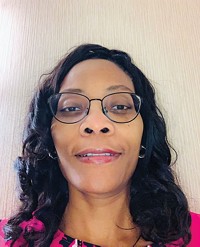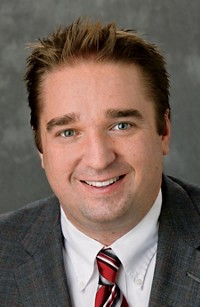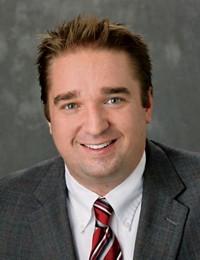Advertisement
Grab your lab coat. Let's get started
Welcome!
Welcome!
Create an account below to get 6 C&EN articles per month, receive newsletters and more - all free.
It seems this is your first time logging in online. Please enter the following information to continue.
As an ACS member you automatically get access to this site. All we need is few more details to create your reading experience.
Not you? Sign in with a different account.
Not you? Sign in with a different account.
ERROR 1
ERROR 1
ERROR 2
ERROR 2
ERROR 2
ERROR 2
ERROR 2
Password and Confirm password must match.
If you have an ACS member number, please enter it here so we can link this account to your membership. (optional)
ERROR 2
ACS values your privacy. By submitting your information, you are gaining access to C&EN and subscribing to our weekly newsletter. We use the information you provide to make your reading experience better, and we will never sell your data to third party members.
Comment
Project SEED hosts a virtual summer camp
by Don Warner, Chair, Council Committee on Project Seed
July 25, 2020
| A version of this story appeared in
Volume 98, Issue 29

On July 6, I participated in an amazing Zoom meeting that was attended by nearly 300 high school students from 27 different states, Washington, DC, and Puerto Rico. The meeting kicked off the 2020 American Chemical Society Project SEED Virtual Summer Camp, which replaces the in-person research that students would normally have conducted as part of their participation in Project SEED.
As ACS staff and the Committee on Project SEED began planning for the 4-week camp, we sought to develop a curriculum that would achieve as many of the program’s objectives as possible in a virtual setting. Participants attended webinars, completed assignments, prepared and revised professional resumes and personal statements for college and scholarship applications, prepared research posters or presentations, and met with chemistry professionals. They were introduced to chemistry research and careers, began building a network in the chemistry scientific community, received basic laboratory safety training, and underwent professional development that aims to help them successfully transition to college. The camp ended with an “unconference” where students shared their work, heard from each other, and attended various talks. Participants received a small stipend for the summer.
Setting up the camp was a significant endeavor. The 300 high school participants were divided into groups of 10. Each of these groups, or “cabins,” were supported by two undergraduate or graduate students (“cabin leaders”) who are responsible for providing feedback on assignments, meeting with each group via Zoom three times per week, and ensuring that everything runs smoothly. Additionally, approximately 20 chemistry professionals volunteered their time to provide additional support to the participants and cabin leaders. The curriculum was delivered by an online learning management system that was tailored specifically for Project SEED, and all of the webinars and meetings were held via Zoom.
I want to express my sincere gratitude for the long hours and tremendous efforts of many ACS staff members, especially ACS Student Experiences Manager Racquel Jemison and ACS Student Research Manager Justin Zimmerman, who made the virtual camp possible.
In addition to the virtual summer camp, the committee has two noteworthy items to share with the broader chemistry community. First, in late 2019, the committee voted to increase the summer research stipend to $3,200 (from $2,500) for first-time students, and to $3,800 (from $3,000) for returning students. The increase corresponds to a wage of $10 per hour for first-time students from $7.81 per hour previously. Based on our survey of Project SEED coordinators and mentors, we learned that the prior stipend, which hadn’t changed since at least 2012, was a barrier to recruiting qualified participants. We have anecdotal evidence that the increased stipend generated more student interest. Before this summer’s program was canceled, we had requests to include more than 550 students, which would have been a record number!
SEED is an acronym for “Summer Experiences for the Economically Disadvantaged.” As such, to participate in summer research, a SEED student’s family income must not be higher than 200% of the federal poverty level. Thus, to use a family of four as an example, the upper limit for participation translates to an adjusted gross income of $52,400 per year. The committee has thought, for a while now, that 200% of the federal poverty level is not an adequate indicator of economically disadvantaged. Specifically, we were dissatisfied that the threshold did not take into account local costs of living and other factors that contribute to underrepresentation in the sciences. During our virtual spring executive meeting to develop the new criteria for participation in Project SEED, we discussed methods used to measure financial eligibility requirements with Erica Greenberg from the Urban Institute, an expert on poverty in America. We also talked about recent guidelines from the National Institutes of Health that expand the NIH’s definition of what it means to be socioeconomically disadvantaged. During our fall executive meeting, we expect to finalize an updated eligibility requirement that is more representative of the diverse circumstances faced by students from socioeconomically disadvantaged backgrounds.
Lastly, this is the final year that I will serve as chair of the ACS Committee on Project SEED. I have been very fortunate to work with many great people who are part of this fantastic program. I started my 3-year term as chair by helping to organize Project SEED’s 50th anniversary celebration and now I am ending it by helping to plan and implement the SEED virtual summer camp during a pandemic. Throughout, I have experienced firsthand one of the very best programs that ACS has to offer the broader scientific community. Project SEED is a successful tool for helping students from diverse backgrounds become professional scientists. I ask that you please consider donating to Project SEED, especially when renewing your ACS membership. For more information on the program, visit www.acs.org/projectseed.
Views expressed are those of the author and not necessarily those of C&EN or ACS.





Join the conversation
Contact the reporter
Submit a Letter to the Editor for publication
Engage with us on Twitter